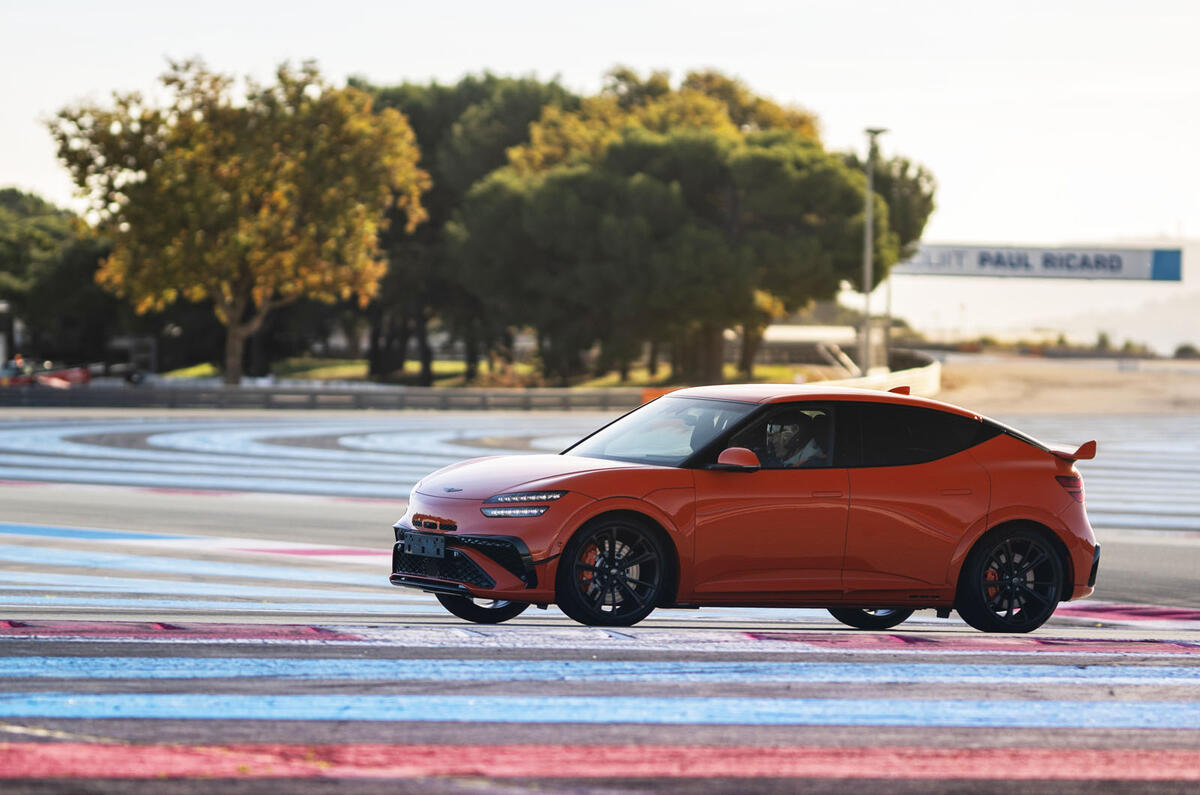Genesis, Hyundai’s premium brand, will be repositioned as a “luxury high-performance” marque in its second decade, beginning with the launch of the new Magma sub-brand and an expansion into motorsport.
Outlined at an event to mark the 10th anniversary of Genesis and the full launch of Magma, the new vision will serve as the ‘cornerstone’ of a plan to further develop the brand in the next decade and shift it from the premium sector to the luxury areana. The aim is to build on Genesis’s luxury billing with a new commitment to more sporting models.
Key to the new positioning will be the launch of the Magma sub-brand. Range-topping Magma versions of all Geneseis models are planned, starting with the new GV60 Magma, and the new Magma GT Concept will be previewed as a halo sports car.
Genesis launched in late 2015 in the US and its native Korea, initially with a line-up of luxury saloons. In 2021 it expanded into Europe, including the UK, where progress has been slower: it has sold 1060 models in the UK so far this year.
Hyundai and Genesis boss Jose Munoz said the brand achieved one million global sales "faster than any luxury marque in history” and described Magma as a declaration that "the next 10 years will be even more significant”. He confirmed that by the end of the 10-year plan every Genesis model would have a Magma version.
Genesis has sold around 1.3 million models to date, with Munoz claiming that it reached the one million mark in just over seven years – faster than Tesla and Toyota's Lexus bran. Munoz added: "This is remarkable: some people are talking about Tesla, and some about Lexus, or other companies. And we said to ourselves, 'hey, how long did it take them to reach one million sales?' We have been the fastest growing luxury brand ever."
Genesis currently has annual global sales of around 225,000, and the goal is to increase that by 55% to 350,000 units per year by 2030. Key to that growth will be the launch of new products and expansion into new markets, including several more European countries. Genesis is aiming to grow its European sales by 650% in the next five years. "We have a very bold plan for Europe," said Munoz. "Europe is going to have a new strategy, new product, new technology, new distribution. And then this is going to bring us some presence in this key market."
Speaking about how Genesis would increase, Munoz added: "We need to continue to grow with a very clear strategy: we want to introduce new advanced technologies, and we want to enter into new growth markets. It's a very simple plan but very powerful."
In terms of new technologies, Genesis continues to push electric technology, but its 'brand ambition' now includes hybrids and extended-range electric vehicles (EREVs), which will likely be key to continued growth in the US market.
While Munoz declined to talk about specific products beyond those shown at the event, he said: "We want to be strong in SUVs, in emotional halo products and in very specific one-of-one bespoke programmes. And, more importantly, in high performance."
That performance push will come through the new Magma brand. Genesis says its ‘luxury high-performance’ philosophy differs from more conventional brands focused on horsepower or speed by blending luxury – which it defines as offering refined elegance and elevated experiences – with ‘seamless, effortless performance’. Munoz said he anticipated Magma models accounting for around 10% of Genesis's total, which, if Genesis reaches its 350,000 annual target, would mean 35,000 sales per year.








Add your comment